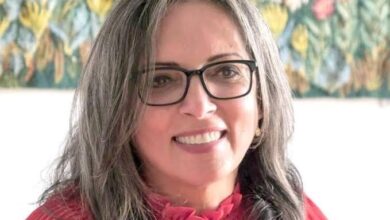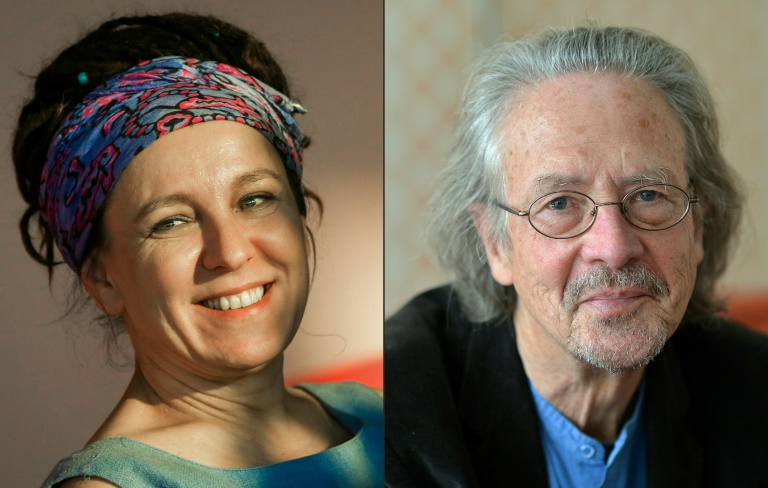In this, the second of a two-part interview series, acclaimed novelist Dr. Alaa Al Aswany discusses presiding over literary competitions, his latest newspapers columns and the broader implications of the backlash against his last novel “Chicago.”
Al-Masry Al Youm: Is your involvement in literary competitions a way of keeping in close contact with young writers?
Alaa Al Aswany: I feel once you reach a certain degree of success you have an obligation to help others, the way other elders helped you when you were younger. So I accept jury positions in small literary competitions here in Egypt, and I’ve been doing a weekly seminar for 13 years for young writers.
Al-Masry: In the literary competitions that you have participated in, what values do you encourage in young writers?
Al Aswany: I only get engaged if the writer is talented. If they’re not talented, there’s no point. It can’t be taught, but it can be spotted easily, especially with experience. Even if it’s messy in the beginning, you can cling to it in its raw and precious form. As soon as I find someone who has talent I feel a responsibility. And I criticize them severely, because that was my experience. It doesn’t need to be cruel, but you can be demanding.
Al-Masry: The last competition you were involved with, “39 under 40” in Beirut, ended in disagreement with the organizers and your withdrawal from the position you’d accepted as head of the selection committee. Any regrets?
Al Aswany: None. I’m very comfortable with, even proud of, the position I took. It honors me that I have a lot of people’s trust in Egypt and the Arab world, so I don’t risk my name or reputation. Not to mention my conscience. I got into an argument [with the organizers] because they only advertised the competition on their website, which means nothing. It should have been advertised using many forms of popular and accessible media. They did that because they already had a list of people they wanted to select the winners from.
To have a fair competition involves having a consciousness of fairness, and that’s very difficult to acquire under a dictatorship. People usually reproduce the values they grew up with. To overcome that requires awareness, to make a conscious effort to distinguish between what you’ve been through and what you should do, which is not easy, and I’ve tackled that subject in my writing.
Al-Masry: You’ve also contributed numerous essays and columns for various newspapers.
Al Aswany: I’ve written in a lot of places, and have contributed to El-Shaab, El-Ahaly, El-Araby El-Nassery and El-Dostour on a regular basis. I now contribute to El-Shorouk. The articles are translated into English every week and then go to my literary agent who presents them to the international press. About eighty percent of them have been published abroad. Now my opinion is heard not only in Egypt, and with that comes a responsibility.
Al-Masry: What are some of the issues that you tackle in your columns?
Al Aswany: Our main disease in Egypt is dictatorship. We have many symptoms and complications – poverty, injustice, corruption, fanaticism, violations of human rights, false religiosity, and many others. You can not cure the complications without curing the disease, and that’s exactly what I try to explain. Democracy is the solution, and I always end all my articles with those words.
Al-Masry: Do you find that your politics seep into your novels?
Al Aswany: My favorite definition of the novel is the following: the novel is a life on paper that is similar to our daily life but more profound, more significant, and more beautiful. Accordingly, everything which is essential in our daily life must be included in the novel, and politics is no exception. If you’d like to change the situation in a society, you must engage in politics. Literature produces a much more difficult and much more important change, it changes us. It teaches us to be less judgmental and more understanding.
Al-Masry: How do you manage the shift between political or social activism and the necessarily introspective process of writing novels?
Al Aswany: The novelist doesn’t work in isolation, he lives among his characters. The philosopher is the one who needs isolation, dealing with conflicting abstract ideas in his ivory tower, where interaction with people can be truly detrimental to his work. I belong with people. You’d be surprised at the diversity of my friends, from thugs in Sayeda Zeinab to the sons of royalty from Mohamed Ali Pasha palace. This is my work. I love people and everyone I befriend enriches me.
I’ll tell you about a strange feeling – it may be the first time I talk about it. There’s a moment in my process which I find very difficult, which is printing the novel onto a CD when I’m wrapping it up. I can spend two weeks stuck in this phase, unable to bring myself to print it. I’ve analyzed this feeling and discovered several things. First, you’ve spent a long time with a lot of people, the novel’s characters, and it’s time to bid them farewell. Secondly, it’s like your daughter’s getting married. You’re happy for her but also sad to be letting her go, knowing that she won’t be needing you anymore. It’s a very strange feeling. The last time it happened, with the novel “Chicago,” I spent over a week stalling. There’s a resistance, because the moment you hit that print button, one stage of your life is over and another begins. So you’re never alone. Quite the contrary, you’re always with people. Even when you’re with imagined people you’re still with people.
Al-Masry: Speaking of “Chicago,” how do you feel about the critical backlash against it?
Al Aswany: The novel was first serialized in El-Dostour. When you’re published there you’ve stepped out of the circle of literature readers. Now ordinary people are reading your work, and I was really impressed by their positive feedback. But there was a segment, no more than five percent, who were religious fanatics. And religious fanaticism and literature don’t mix – if you love literature, it’s impossible to be a religious fanatic. They created such a maelstrom, releasing statements and sending them to ministers, because of the sexual scenes in the novel.
They can’t accept sexual scenes in literature, including of course Egyptian literature. Sex is not just taboo and pleasure; it’s about human contact, human relations. You can perform sex because you’re desperate, because you’re looking for a mother, a lot of reasons. The religious fanatic, however, is obsessed with the female body. Despite his maintaining the appearance of safeguarding virtue, in reality he has an obsession. His assumption is that a woman is a source of temptation, an object of sexual desire, and a machine to produce children. And that’s it. So when he finds any sexual scenes in a novel he can’t get past them and consider what the writer is trying to convey.
I’ll give you an example. Soad Hosny’s rape scene in Al Karnak. If you’re a mentally balanced person, you might not be able to bear that scene. It’s terrible, repugnant. I know people who threw up watching it. If you have an unhealthy obsession with sex, and unfortunately most religious fanatics do, the only thing you’ll see in that scene is that Soad Hosny bared her knee. That’s the only significant thing. The fact that she’s getting raped, or violated, doesn’t matter – a knee was bared.
These people can’t read literature. If they read literature, and cultivated an appreciation of it, they would not be fanatics. But they do have the power, I discovered, of funded organization on the internet. What they call “electronic jihad.” I’ve written about the niqab, hijab, and a series of columns about the new preachers, like Mostafa Hosny. If you cross their red lines they insult you, collectively and forcefully, and most of them haven’t even read the article in discussion. They made such noise that at one point I felt this was the mainstream public opinion.
So I feel very satisfied with the feedback, but I’m always learning. I no longer get perturbed by this noise. I’ve become familiar with the vocal organized fanatics.
Al-Masry: There was also a response from intellectual circles that felt the novel’s characters fell into easy stereotypes.
Al Aswany: I can send you an entire file of the international critics’ reviews – what Le Monde wrote, or the Guardian or the New York Times, as well as prestigious critics here. I don’t think I need any additional acclaim. But at the same time there’s something you must understand. It’s a painful realization. We live in an oppressed society – frustrated and coexisting with its frustration. The average person is well aware than they deserve better than what they have. When you achieve success in such an oppressed society equal to other people’s success it’s OK, when you fail it’s OK, when you achieve great success but you don’t live in Egypt that can also be accepted. But when you live among them, in the same neighborhoods, and achieve great success – and I’m not referring to everyone, I have a lot people who’re close to me who love me and are proud of me and my success – there’s a portion of people who truly hate you. They don’t hate you figuratively, they truly despise you. Even if they don’t know you personally. Because you’re the only evidence that they could have done better. So they feel the urge to crush you morally.




